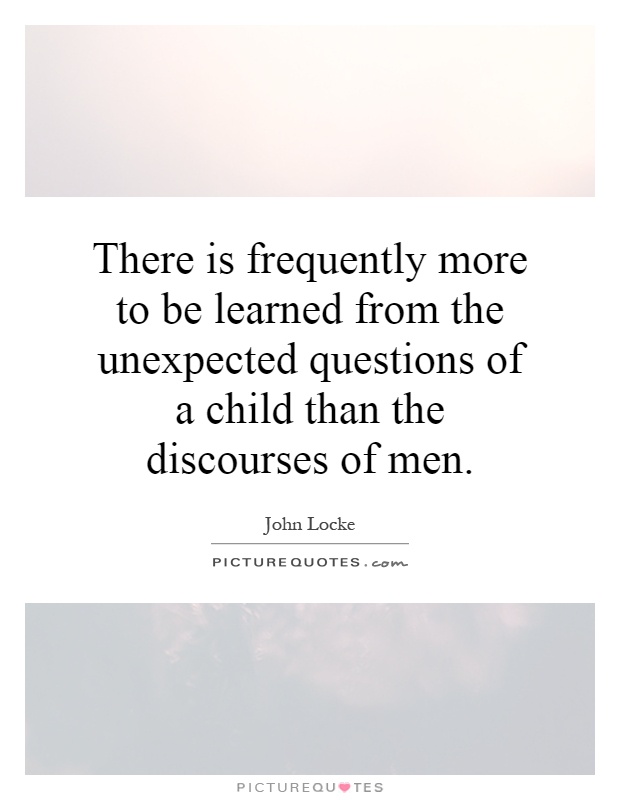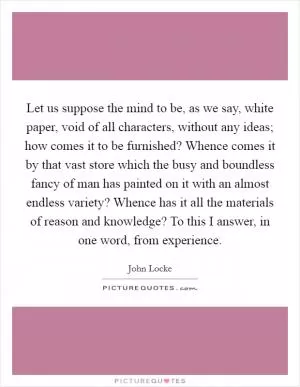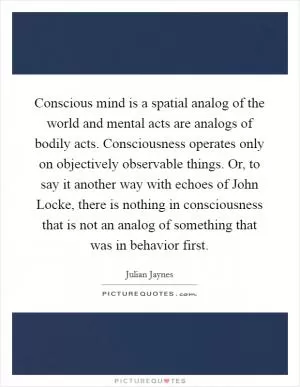There is frequently more to be learned from the unexpected questions of a child than the discourses of men

There is frequently more to be learned from the unexpected questions of a child than the discourses of men
John Locke, a prominent philosopher of the 17th century, is known for his contributions to the fields of epistemology, political theory, and education. Locke believed that the human mind is a blank slate at birth, and that knowledge is acquired through experience and observation. In his famous work, "An Essay Concerning Human Understanding," Locke explores the nature of knowledge and the limits of human understanding.Locke's philosophy emphasizes the importance of curiosity and inquiry in the pursuit of knowledge. He believed that children are naturally curious and have a unique ability to ask unexpected questions that can lead to new insights and discoveries. In this sense, Locke would likely agree with the statement that "there is frequently more to be learned from the unexpected questions of a child than the discourses of men."
Children have a fresh perspective on the world and are not bound by preconceived notions or biases. Their questions are often simple and direct, yet they can reveal profound truths and challenge established beliefs. Locke would argue that adults can benefit from engaging with children's questions, as they can prompt us to reconsider our assumptions and explore new ideas.
Locke's emphasis on the importance of children's questions is also reflected in his views on education. He believed that education should be based on the principles of reason and experience, and that children should be encouraged to think critically and independently. By fostering a spirit of inquiry and curiosity in children, Locke believed that they would be better equipped to navigate the complexities of the world and make informed decisions.












 Friendship Quotes
Friendship Quotes Love Quotes
Love Quotes Life Quotes
Life Quotes Funny Quotes
Funny Quotes Motivational Quotes
Motivational Quotes Inspirational Quotes
Inspirational Quotes